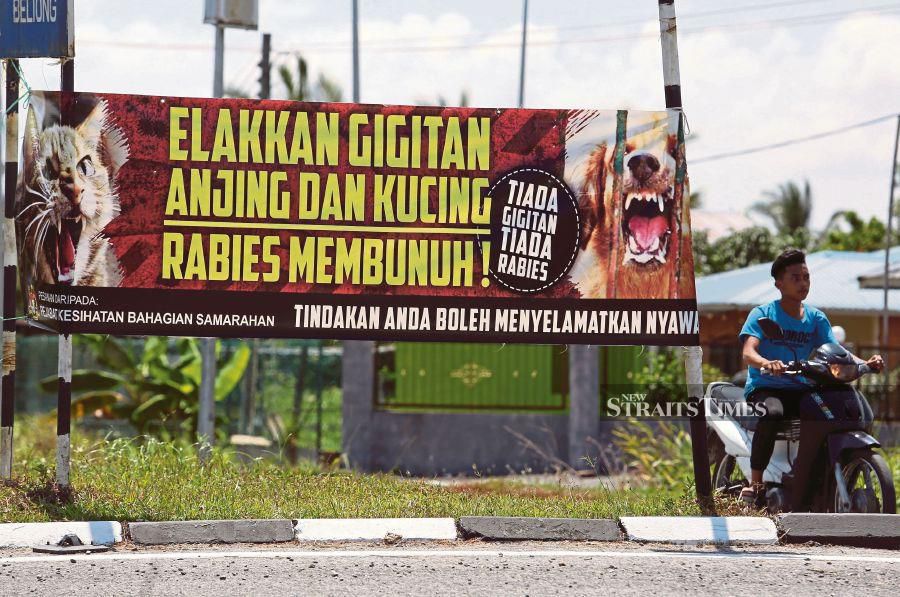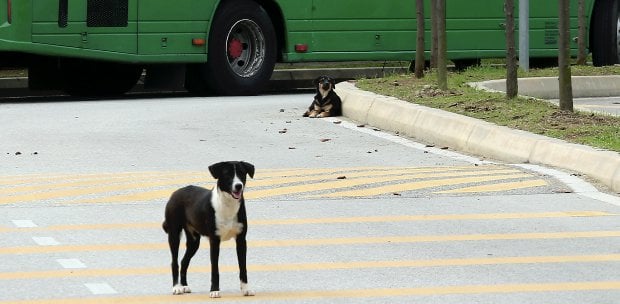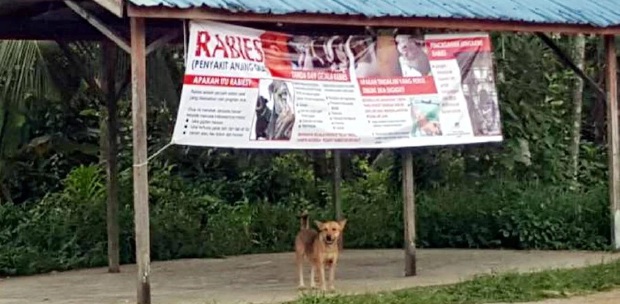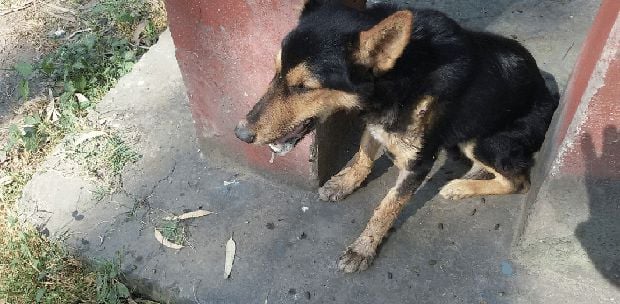It has been six years since the first outbreak of rabies was reported in Sarawak.
An initially aggressive, zero-tolerance approach might have isolated and confined the dreaded disease to the regions bordering Indonesia's Kalimantan, where it originated.
Now, rabid dogs have been discovered across the state, all the way to Limbang, bordering Brunei.
Health director-general Datuk Dr Muhammad Radzi Abu Hassan was quoted on May 16 as saying 66 cases of human rabies and 59 deaths had been recorded since the outbreak in July 2017. This year alone, 11 cases and nine deaths have been logged.
It is only recently that the authorities have started viewing the matter seriously.
A campaign has been launched to round up stray dogs running rampant, particularly in urban centres such as Kuching.
The State Disaster Management Committee (SDMC) is mulling redesignating rabies as a "disaster", a status last conferred in January, 2019.
The rounding up of stray dogs and mass culling of rabid dogs should have been the priority when cases were first reported. This is easier said than done looking at resistance from the public, particularly animal lovers.
A public awareness campaign to highlight the dangers of rabies is lacking, despite the number of lives claimed by the disease.
An effective campaign may have blunted the sometimes ferocious but unreasonable extent to which dog lovers go to defend even strays.
Rather than cooperating with the authorities, some people are inclined to be on the side of dogs, which can turn aggressive if they are rabid and pose a danger to those assigned to catch them.
These dog catchers are often in a no-win bind — aggressively going after equally aggressive dogs may rile up onlookers, who will then make official complaints.
Political leaders are caught in the bind as well. They are responsible for the wellbeing and health of citizens in the face of a health-threatening crisis like the rabies outbreak.
Rabies may not be as great a danger to public health as the Covid-19 pandemic has been. Still, the aim should be to eradicate both, if possible.
Covid-19 is spread by a virus invisible to the human eye, but rabies is carried by dogs.
An exercise to give pet dogs anti-rabies jabs will go a long way towards containing its spread to humans. The weak link is, of course, how best to control stray animals.
Following the deaths of eight rabies victims last week, Kuching South mayor Datuk Wee Hong Seng said the city council prioritised human lives and was carrying out joint operations with local councils to catch stray dogs to curb the spread of rabies.
"We totally understand the feelings of certain groups of people having love for their pets and all that.
"We want to make it clear that the joint operations between the councils is to catch stray dogs — the dogs without owners."
SMDC must ensure that its anti-rabies campaign is well coordinated.
Unlike Covid-19, which is a health threat mainly to humans, rabies threatens both humans and animals.
The state health portfolio comes under Deputy Premier Datuk Seri Dr Sim Kui Hian, who is an official adviser to SMDC, which, in turn, is headed by another deputy premier, Datuk Amar Douglas Uggah Embas.
The state Veterinary Department, which oversees anti-rabies measures, however, comes under the purview of state minister Datuk Seri Dr Stephen Rundi Utom. Perhaps it is time one of these three state ministers took full charge as the undisputed anti-rabies czar.
The writer views developments in the nation, region and wider world from his vantage point in Kuching
The views expressed in this article are the author's own and do not necessarily reflect those of the New Straits Times






